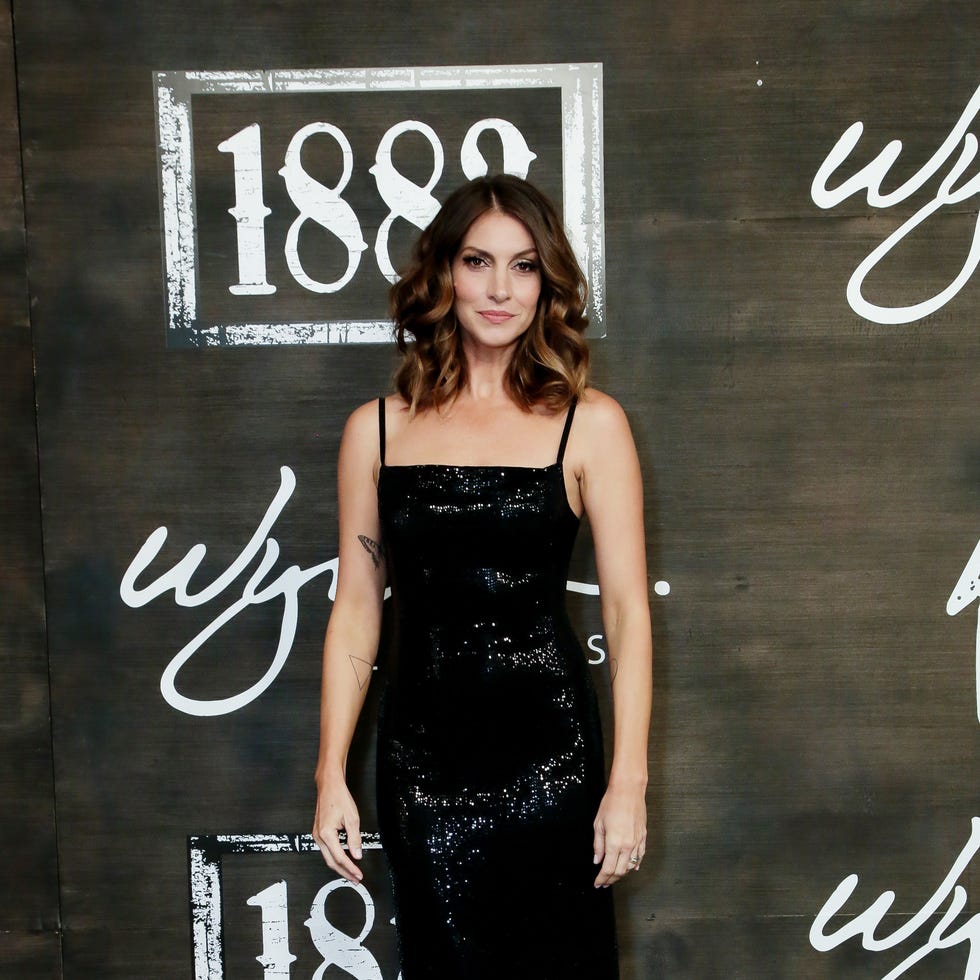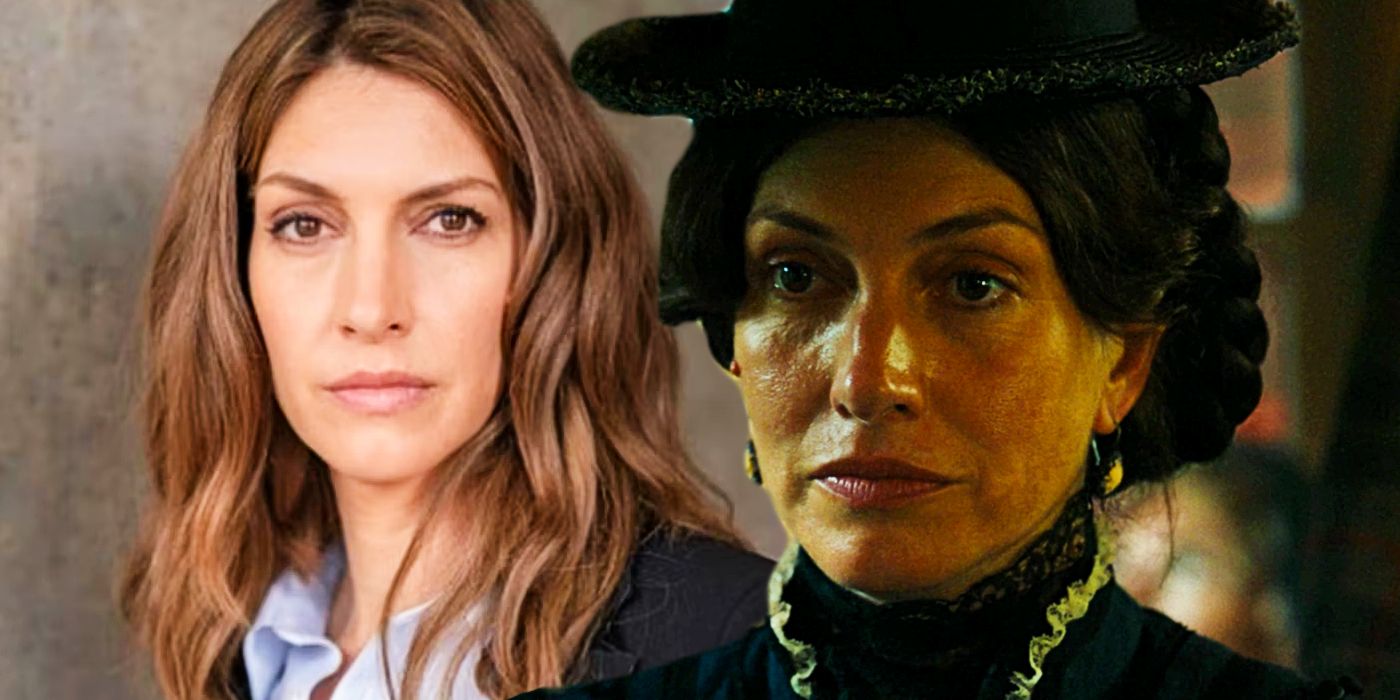Claire Dutton's Tragic Story: 1883 Widow's Fate & Family
How does one reconcile the harsh realities of survival with the delicate expectations of societal decorum, especially when faced with unimaginable loss? The story of Claire Dutton in "1883" presents a poignant, albeit tragic, exploration of this very conflict, portraying a woman whose life was defined by both profound sorrow and unwavering adherence to her principles.
Claire Dutton's journey, as depicted in the "Yellowstone" prequel, "1883," is a stark portrayal of the human spirit tested by the unforgiving nature of the American West. She was the sister of James Dutton, a central figure in the Dutton family saga, and a woman who carried the weight of immense personal tragedy.
| Attribute | Details |
|---|---|
| Full Name | Claire Dutton |
| Played by | Dawn Olivieri |
| Known for | Character in "1883," the "Yellowstone" prequel |
| Relationship | Sister of James and Jacob Dutton; mother of Mary Abel |
| Marital Status | Widowed |
| Tragedy | Lost six children to death; daughter Mary Abel killed |
| Fate | Died by suicide in 1883 |
| Personality | Stern, cold, and considered herself a proper lady |
| Notable Quote | "Cant believe in heaven, then be sad when people go there." (Regarding her husband's death) |
| Reference | IMDB - Dawn Olivieri |
Claire's arrival in Fort Worth, Texas, alongside her daughter, Mary Abel, marked a new chapter, yet one shadowed by grief. Her husband, Henry, had passed away, leaving her a widow burdened not only by the loss of her spouse, but also by the loss of her six other children to death. When James Dutton and his family began their westward journey, Claire and Mary Abel joined them, seeking a new home and a fresh start.
Dawn Olivieri's portrayal of Claire is particularly compelling. She embodies a woman who refuses to compromise her values, a trait often at odds with the raw, untamed landscape they were traversing. Claire's stern demeanor and unwavering adherence to propriety were not merely character quirks; they were her armor against the harsh realities she faced. Her intensity mirrors that of her daughter, Mary Abel, who also strives to maintain a sense of decorum amidst the chaos.
The journey west, however, proved to be a crucible, testing Claire's resilience and pushing her to the breaking point. The brutal world of 1883 offered little comfort, and the constant threat of violence was ever-present. Tragically, Mary Abel, the last remaining beacon of hope in Claire's life, was killed in a violent attack by cowboys, an event that shattered Claire's fragile emotional state.
The loss of Mary Abel was the final blow. Consumed by grief, and unable to reconcile the horrors she witnessed with her deeply held beliefs, Claire made the heartbreaking decision to end her life. The second episode of "1883" witnessed Claire's death, a suicide, a desperate act of a mother consumed by despair. She never even left Texas, a testament to the crushing weight of her grief and the environment around her, Claire's journey, though brief, left an indelible mark on the narrative of "1883."
The circumstances of Claire's life highlight a recurring theme in the Dutton family saga: the price of survival and the enduring power of loss. The Duttons are no strangers to suffering, but Claire's experience encapsulates the specific challenges faced by women during that era. She was a widow, a mother, a sister, and a woman who struggled to maintain her dignity in a world that often sought to strip it away. Her death serves as a grim reminder of the human cost of the westward expansion, and the devastating impact of grief.
The character of Claire Dutton also sheds light on the importance of family and the bonds that hold people together during times of adversity. Claire, despite her sternness, was deeply connected to her brother James and his family. Her decision to travel with them underscores the significance of kinship in providing support and a sense of belonging. The shared journey, however fraught with peril, represents a collective effort to find a better future.
Moreover, Claire Dutton's story offers insight into the complex social dynamics of the time. The series highlights the clashes between the established ways of life and the emerging forces of the American West. Claire's emphasis on proper behavior, and her refusal to beg, reflect the values of a society grappling with change. Her story is a reflection on the impact of those changes on individuals, especially those who cling to their established worldviews.
As the story progresses, the impact of Claire's death resonates throughout the series. Her brother, James, and his family are left to grapple with the aftermath of her suicide and the broader tragedies that have befallen them. The echoes of her loss are felt in the choices they make, and the challenges they face as they strive to build a new life. The narrative of "1883" is filled with loss, but Claire Dutton's experience serves as a particularly harrowing illustration of the emotional toll of that loss.
Claire's story also provides a contrast to the experiences of other women in "1883," such as Margaret Dutton, James wife. While both women share the common experience of facing extraordinary hardships, their responses to those hardships differ. Claire's response, marked by a profound sense of sorrow and an inability to find a place for herself in the new world, stands in stark contrast to Margarets, who displayed resilience and adaptability. This contrast helps to highlight the diverse ways individuals cope with grief, loss, and the struggle for survival.
The audience learns of Claires pain from her words, her actions, and those of her family. Her interactions with her niece, Elsa, the daughter of James and Margaret, highlight her strict nature and the values she holds dear. These interactions reveal the gulf that separates her from her family, as the series unfolds, she stands as a symbol of loss, her story contributing to the greater narrative of hardship, resilience, and the enduring search for a better life in the face of overwhelming adversity.
Furthermore, Claires story speaks to the historical context of the American West, the show, through her character, emphasizes the struggles of women, who have often been overlooked in historical accounts of the era. Her experience as a widow, a mother, and a woman dealing with the trauma of loss provides a window into the lives of many women who confronted these challenges in a changing world.
The casting of Dawn Olivieri as Claire Dutton brought a depth and nuance to the character, allowing audiences to connect with her story. Olivieri, known for her versatile performances, expertly portrays the complexity of Claire's emotions, giving the audience a look into her character. This adds another layer of tragedy and human interest to the show.
The story of Claire Dutton, though brief, embodies the core themes of 1883. It speaks of loss, of the importance of family, and the struggle to maintain one's values amidst the harsh realities of the American West. Her story, a poignant reminder of the human costs of the frontier experience, makes an enduring impact on the audience.
In addition to the emotional depth it gives to the series, Claire's story also provides a broader context for the Dutton family saga, it sets the stage for the events that unfold throughout "Yellowstone," underscoring the enduring legacy of pain, resilience, and the ongoing quest for a home in a world often defined by brutality. The tragedy of Claire Dutton, a stern woman, serves as a reminder of the sacrifices and losses endured by those who dared to forge a new life in the untamed West.


